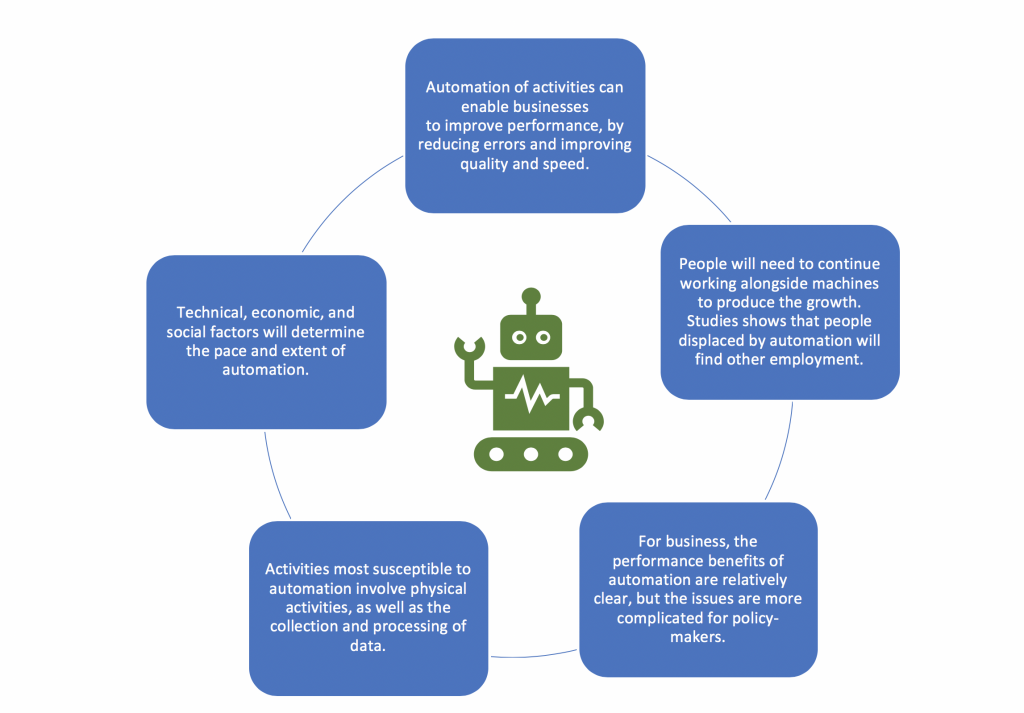The Stefanie Stantcheva award, a prestigious recognition within the economic community, was recently bestowed on the Harvard economist for her groundbreaking contributions to tax policy and public finance. As the recipient of the 2025 John Bates Clark Medal, Stantcheva has firmly established herself as a powerful voice in understanding economic behavior, particularly in how taxation influences innovation. During a celebratory event, she expressed profound gratitude for the honor, highlighting the profound impact that well-crafted tax systems can have on fostering economic growth. Her research, especially the paper “Taxation and Innovation in the 20th Century,” reveals critical insights into how changes in tax policy can significantly affect the levels of innovation within an economy. By receiving this award, Stefanie Stantcheva not only acknowledges her own achievements but also elevates the conversation surrounding public finance and its vital role in shaping economic outcomes.
Having earned the esteemed John Bates Clark Medal, Stefanie Stantcheva stands out as a prominent figure in economics, recognized for her innovative approaches to tax regulation and socio-economic dynamics. This accolade celebrates her substantial contributions as a leading Harvard scholar, focusing on the intricate relationship between fiscal policies and their consequences on economic activities. Stantcheva’s insightful exploration into public finance offers valuable perspectives on how taxation can drive or hinder innovation and overall economic behavior. Her work addresses pressing questions concerning various economic factors, such as social mobility, trade, and immigration, ultimately enriching our understanding of how these elements interact within a complex economic framework. Through her ongoing research at the Social Economics Lab, Stantcheva continues to push the boundaries of economic inquiry, reflecting the vital intersection of emotions and policies in shaping societal attitudes and behaviors.
Celebrating Stefanie Stantcheva: A Trailblazer in Economics
Stefanie Stantcheva’s recognition with the prestigious John Bates Clark Medal marks a significant milestone in the realm of economics, particularly in her explorations of tax policy and its role in fostering innovation. As a Harvard economist, her research delves into complex themes of public finance, aiming to unravel how tax structures influence economic behaviors. Through her groundbreaking work, Stantcheva has illuminated the importance of designing tax policies that not only support economic activity but also stimulate innovation, making her contributions vital for contemporary economic discourse.
The American Economic Association honored Stantcheva largely due to her remarkable ability to merge sophisticated economic theory with practical implications that impact everyday life. Her insights into the elasticity of innovation in response to tax policy shifts showcase her commitment to producing research that informs policymakers and enriches public finance understanding. Celebrating Stantcheva’s achievements also serves as a reminder of the crucial role that young economists play in shaping economic policy for future generations.
The Impact of Tax Policy on Innovation: Insights from Stantcheva’s Research
Stefanie Stantcheva’s research emphasizes the delicate balance between tax policy and innovation, particularly highlighted in her 2022 paper, “Taxation and Innovation in the 20th Century.” The findings articulate that while higher taxes may stifle the quantity of innovation, they do not necessarily diminish the quality of inventions. This nuanced perspective challenges traditional assumptions about taxation’s role in economic growth and illustrates the complexity of public finance insights that Stantcheva adeptly navigates.
Moreover, Stantcheva’s work encourages stakeholders to reconsider how tax systems are designed, pushing for frameworks that foster creative outputs while maintaining sufficient revenue for public goods. Her efforts in elucidating the implications of tax policies through the lens of economic behavior aim to inform both academic and public discussions on how fiscal strategies can better align with innovation-driven objectives. The economists’ insights contribute richly to ongoing debates about the future of tax policy in an ever-evolving economic landscape.
Stefanie Stantcheva’s Contributions to Public Finance and Economic Behavior
With a focus on public finance and economic behavior, Stefanie Stantcheva’s contributions are shaping a new understanding of how individuals and organizations react to fiscal policies. Her explorations into the intersection of emotions and economic policy, along with her innovative work at the Social Economics Lab, highlight the importance of psychological factors in economic decision-making. By addressing the interplay between public sentiments and scientific economic models, Stantcheva is redefining how economists perceive the human element in fiscal systems.
Furthermore, Stantcheva’s approach encourages interdisciplinary collaboration, seeking to incorporate perspectives from psychology and sociology into economic research. This holistic view allows for a richer analysis of issues ranging from taxation to social mobility, showcasing her commitment to addressing complex economic challenges that influence daily lives. By bridging the gap between theory and real-world application, her work ensures that the field of economics continues to evolve alongside societal changes.
The Social Economics Lab: Advancing Research under Stantcheva’s Leadership
Founded in 2018, the Social Economics Lab embodies Stefanie Stantcheva’s vision to forefront research that integrates economic insights with social contexts. By focusing on pressing topics such as trade, immigration, and climate change, the lab under her leadership is paving the way for innovative public finance research that reflects contemporary issues. This initiative not only fosters academic growth but also serves as a platform for nurturing future economists who are equipped to tackle today’s multifaceted societal challenges.
The research conducted at the Social Economics Lab represents a paradigm shift in how economists like Stantcheva approach traditional economic studies. By exploring themes of social mobility and the emotional responses to economic policies, the lab stands to contribute significantly to policy discussions, influencing how governments design their fiscal frameworks. Stantcheva’s dedication to this initiative highlights her understanding that economics transcends mere numbers, impacting the fabric of society itself.
Public Recognition: The Significance of the John Bates Clark Medal
The award of the John Bates Clark Medal not only highlights individual achievements but also signifies the value placed on innovative contributions in economics. As one of the highest honors for under-40 economists, receiving this award places Stefanie Stantcheva among an elite group of scholars who are shaping economic thought and policy. For emerging economists, this recognition serves as inspiration, reinforcing the importance of rigorous research and its potential to influence public discourse.
Awarded by the American Economic Association, the John Bates Clark Medal acts as a beacon for excellence within the field, encouraging economists such as Stantcheva to continue pushing boundaries in their research. The recognition is not just a personal honor for Stantcheva; it also brings attention to the work being conducted in academic institutions across the country, emphasizing the critical role of economists in addressing the most pressing issues of our time.
The Role of Young Economists in Shaping Future Economic Policies
As the field of economics evolves, the contributions of young economists become increasingly vital. Stefanie Stantcheva’s work exemplifies how the next generation is addressing contemporary economic challenges with fresh perspectives and innovative research methodologies. Young economists are not just inheritors of past theories; they are active participants in shaping future economic policies that respond to the complexities of our current global landscape.
Through their research endeavors, like those seen at the Social Economics Lab led by Stantcheva, young economists challenge traditional paradigms and explore interconnections between various disciplines. This approach not only enriches the field but also ensures that economic frameworks can adapt effectively to societal needs. In recognizing their contributions, it becomes clear that young economists will play a pivotal role in driving progress and shaping the financial structures of tomorrow.
Stefanie Stantcheva’s Vision for Economic Research
Stefanie Stantcheva envisions a landscape where economic research is deeply intertwined with social sciences, aiming to create a comprehensive understanding of how policies can influence public sentiment and behavior. This vision is evident in her commitment to expanding the scope of traditional economics to include dimensions such as emotions and societal impact. By positioning herself at the forefront of these interdisciplinary discussions, Stantcheva is poised to influence not only academic scholarship but also practical policy applications.
Her ongoing projects demonstrate a forward-thinking approach that encourages economists to remain responsive to the evolving challenges faced by society. By advocating for research that prioritizes social justice, climate concerns, and innovative economic solutions, Stantcheva sets a powerful example for future economists. The interplay of her work with broader societal issues reflects a critical understanding of the role economics plays in our lives, urging scholars to consider the implications of their research beyond theoretical confines.
The Importance of Economic Behavior Studies in Tax Policy
Economic behavior studies are crucial in understanding how individuals react to various tax policies, and Stefanie Stantcheva’s work stands out in this field. By analyzing the psychological factors that influence decision-making, her research provides insights into how people perceive and respond to taxation systems. This understanding is essential for policymakers seeking to design tax frameworks that are not only effective but also aligned with the public’s mindset.
Through her comprehensive research, Stantcheva highlights that nuanced approaches to tax policy can enhance compliance and foster an environment conducive to innovation. Recognizing the behavioral economics aspects of tax policy allows for more informed decisions that consider the real-life implications of taxation on individual and collective economic behaviors. This body of work underscores the necessity for economic research to continuously evolve, incorporating findings from behavioral studies to facilitate more effective public finance strategies.
Future Directions for Research Inspired by Stantcheva’s Work
Stefanie Stantcheva’s groundbreaking research lays a robust foundation for future studies in economics, especially within the realms of tax policy and innovation. As her work continues to catalyze discussions about the implications of fiscal strategies on economic growth and behavior, it inspires a new generation of economists to delve deeper into these critical areas. The questions raised by her studies regarding the responsiveness of innovation to tax changes serve as a starting point for numerous potential research avenues.
The exploration of new themes, such as the emotional dimensions of economic policies or the effects of taxation on social mobility, demonstrates a commitment to expanding the boundaries of traditional economics. As researchers build on Stantcheva’s findings, they will be able to address immediate and pressing economic questions, ultimately contributing to more effective and inclusive policies. Her legacy of innovation and inquiry encourages a dynamic and responsive approach to economic research, one that is essential for navigating the complexities of the modern economic landscape.
Frequently Asked Questions
What is the Stefanie Stantcheva award regarding the John Bates Clark Medal?
The Stefanie Stantcheva award refers to her recognition as the recipient of the prestigious John Bates Clark Medal, awarded by the American Economic Association. This medal honors exceptional economists under the age of 40 for significant contributions to economic research and understanding, particularly in fields like tax policy innovation and economic behavior.
How did Stefanie Stantcheva contribute to tax policy innovation to receive the John Bates Clark Medal?
Stefanie Stantcheva has made significant contributions to tax policy innovation through her research that highlights how tax systems can influence economic behavior. Her work demonstrates the interplay between taxation and innovation, showing that well-structured tax policies can stimulate economic activity.
What are some key findings from Stefanie Stantcheva’s research that contributed to her receiving the John Bates Clark Medal?
In her notable paper, ‘Taxation and Innovation in the 20th Century,’ Stefanie Stantcheva and her co-authors found that innovation is highly responsive to changes in tax policy. Their research indicates that while higher taxes may reduce the quantity of innovation, they do not necessarily impact the quality of inventions, providing vital insights into public finance.
Why is the John Bates Clark Medal significant in the field of economics?
The John Bates Clark Medal is significant as it recognizes outstanding economists under 40 years old who have made impactful contributions to economic science. Winning this award, like Stefanie Stantcheva, highlights the recipient’s advanced research in areas such as public finance and economic behavior, and their potential for future influence on the field.
What areas does Stefanie Stantcheva’s research focus on, which likely influenced her selection for the Clark Medal?
Stefanie Stantcheva’s research focuses on various critical areas including tax policy innovation, public finance, trade, immigration, climate change, and social mobility. Her emphasis on understanding economic behavior and policy implications plays a crucial role in her recognition with the John Bates Clark Medal.
What is the Social Economics Lab that Stefanie Stantcheva founded?
The Social Economics Lab, founded by Stefanie Stantcheva in 2018, is a research initiative aimed at exploring the intersection between economic policies and human behavior. The lab investigates topics like the emotional aspects of economic decision-making and societal issues impacting economic mobility, further contributing to her impactful work in economics.
What impact does tax policy have on innovation according to Stefanie Stantcheva’s research?
According to Stefanie Stantcheva’s research, tax policy significantly impacts innovation; well-designed tax systems can encourage innovation and economic activity, while poorly designed policies may discourage it. Her findings emphasize the elasticity of innovation in response to tax policy changes, providing vital insights for policymakers.
| Key Points | Details |
|---|---|
| Award Received | 2025 John Bates Clark Medal from the American Economic Association |
| Recipient | Stefanie Stantcheva, Nathaniel Ropes Professor of Political Economy at Harvard |
| Significance of Award | Recognizes leading young economists under the age of 40 for significant contributions. |
| Research Focus | Tax policy, its impact on innovation and economic behavior |
| Notable Findings | Higher taxes negatively affect the quantity of innovation but not the quality of inventions. |
| Future Work | Continuing research at Social Economics Lab on economic issues, policy impacts, and human behavior. |
| Community Impact | Recognition of Stantcheva’s work highlights the strength of Harvard’s Economics Department. |
Summary
The Stefanie Stantcheva award, specifically the 2025 John Bates Clark Medal, celebrates her crucial contributions to economics, particularly in tax policy and innovation. Stantcheva’s research highlights the delicate balance of tax systems in shaping economic behavior and encouraging innovation. As a young economist under 40, her work not only advances academic knowledge but also has real-world implications, making her a formidable figure in the field. Her ongoing commitment to exploring critical issues at her Social Economics Lab promises to further enhance our understanding of economic policies and their societal impacts.




